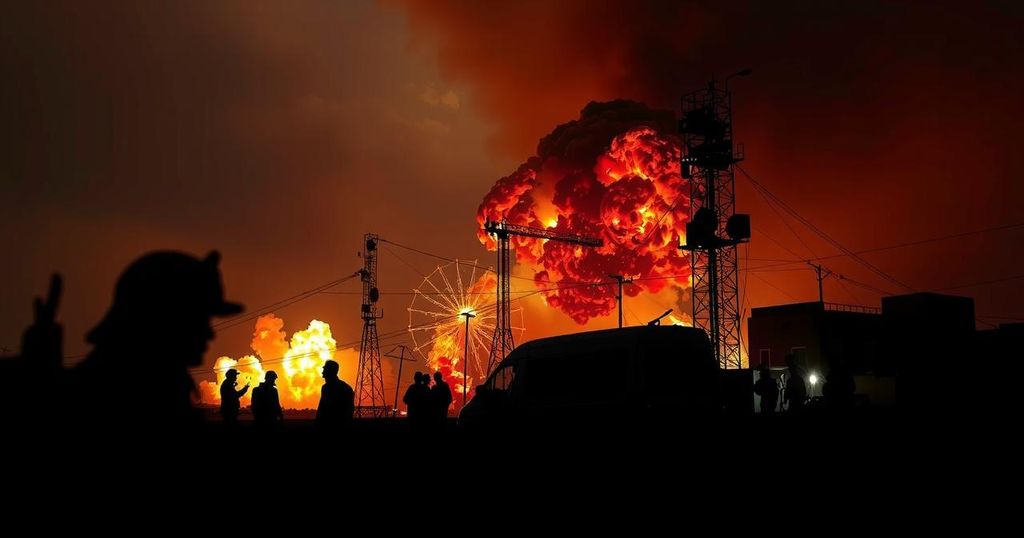Mass Casualties in Hezbollah Due to Exploding Communication Devices Linked to Alleged Cyberattack
Summary
On Tuesday, over 1,000 Hezbollah members sustained injuries in Lebanon after their wireless communication devices exploded, an incident attributed to an Israeli cyberattack. The explosions prompted a significant emergency medical response, confirming serious health implications for the injured involved.
On Tuesday, a series of explosions involving wireless communication devices significantly injured hundreds of members of Hezbollah in southern Lebanon and the southern suburbs of Beirut. Security sources reported to Reuters that the total number of injured individuals exceeded 1,000, in what Lebanese authorities attribute to a cyberattack orchestrated by Israel. The detonated devices were reportedly the latest technology acquired by Hezbollah within recent years. Israel’s Channel 12 disclosed from anonymous security sources that these communications devices had been imported by Hezbollah merely three months prior to the incident. Lebanon’s Health Minister, Firass Abiad, confirmed that there were numerous injuries across the country, while the Iranian Mehr News Agency indicated that Mojtaba Amani, the Iranian ambassador to Lebanon, was also among those injured during the violent episode. Reports ascertained that the explosions originated when pagers, used by Hezbollah members in various locations, detonated due to a wireless technology hack. The blast affected regions including the southern suburbs of Beirut, the Bekaa Valley, and southern Lebanon. The Lebanese Red Cross mobilized more than 30 ambulances to address the emergency, activating all centers in Mount Lebanon and Beirut to a heightened state of readiness. A Red Cross spokesperson remarked, “We have added 50 additional ambulances, and 300 emergency medical technicians are on standby to help evacuate the injured.” The Ministry of Health in Lebanon also confirmed that numerous individuals with diverse injuries were being admitted to hospitals across the country. Initial inquiries suggested that the injuries stemmed from the wireless devices’ explosions. An urgent appeal from the Ministry of Health called for all hospitals, especially those situated near the incident areas, to be on maximal alert and elevate their preparedness for emergency health services. Service coordination was urged between hospitals and the Ministry to ensure the rapid treatment of those affected. A source within Hezbollah revealed to regional news outlets that, “the Israeli occupation had penetrated and detonated pagers belonging to party members in the southern suburbs of Beirut and areas in the south, resulting in numerous injuries.”
The incident involving the explosions of Hezbollah’s communication devices underscores the ongoing tensions between Hezbollah and Israeli forces in the region. Hezbollah, an Iranian-backed militant group, has been known to engage in armed conflict and intelligence operations against Israel. This particular event highlights not only the potential vulnerabilities in Hezbollah’s technology but also the implications of cyber warfare in contemporary conflicts. The injury count reflects a significant operational setback for the group and raises questions regarding the security measures around their communication systems.
The explosions that injured hundreds of Hezbollah members in Lebanon represent a severe incident attributed to an alleged Israeli cyberattack. The scale of injuries indicates a critical breach in Hezbollah’s security protocols, raising concerns regarding the safety of their technological apparatus. Emergency medical responses were initiated swiftly, reflecting the urgency of the health situation at multiple hospitals throughout Lebanon. Furthermore, this event contributes to the ongoing narrative of escalating tensions and cybersecurity threats in the region.
Original Source: www.dailynewsegypt.com








Post Comment